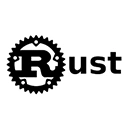Modules in Rust are a way to organize code into separate namespaces, allowing you to group related functionality together. This helps in managing larger codebases and controlling the visibility of items. In this guide, we will explore how to create and use modules in Rust, along with examples to illustrate their usage.
1. Defining a Module
You can define a module using the mod keyword. By default, items in a module are private, meaning they cannot be accessed from outside the module unless explicitly marked as public using the pub keyword.
Example of Defining a Module
mod my_module {
pub fn greet() {
println!("Hello from my_module!");
}
fn private_function() {
println!("This is a private function.");
}
}
fn main() {
my_module::greet(); // This will work
// my_module::private_function(); // This will cause a compile-time error
}
Explanation of the Example
- In this example, we define a module named
my_moduleusing themodkeyword. - Inside the module, we define a public function
greetthat can be accessed from outside the module. - We also define a private function
private_functionthat cannot be accessed from outside the module. - In the
mainfunction, we can callgreet, but attempting to callprivate_functionwill result in a compile-time error.
2. Nested Modules
Modules can be nested within other modules, allowing for a hierarchical organization of code. You can define a module inside another module using the same mod keyword.
Example of Nested Modules
mod outer {
pub mod inner {
pub fn inner_function() {
println!("Hello from inner_function!");
}
}
}
fn main() {
outer::inner::inner_function(); // Accessing the nested module function
}
Explanation of the Example
- In this example, we define an outer module named
outerand a nested module namedinner. - Inside the
innermodule, we define a public functioninner_function. - In the
mainfunction, we access the nested function using the full pathouter::inner::inner_function.
3. Organizing Modules in Separate Files
Rust allows you to organize modules in separate files for better code organization. You can create a file named my_module.rs for the my_module module, and Rust will automatically include it when you declare the module in your main file.
Example of Organizing Modules in Separate Files
// main.rs
mod my_module; // Declare the module
fn main() {
my_module::greet();
}
// my_module.rs
pub fn greet() {
println!("Hello from my_module!");
}
Explanation of the Example
- In this example, we declare the
my_modulemodule in themain.rsfile usingmod my_module;. - We create a separate file named
my_module.rswhere we define thegreetfunction. - When we run the program, Rust automatically includes the contents of
my_module.rs, allowing us to call thegreetfunction from the main file.
4. Controlling Visibility
Modules allow you to control the visibility of items. By default, items are private, but you can use the pub keyword to make them public. This is useful for encapsulating functionality and exposing only what is necessary to the outside world.
Example of Controlling Visibility
mod my_module {
pub fn public_function() {
println!("This is a public function.");
}
fn private_function() {
println!("This is a private function.");
}
}
fn main() {
my_module::public_function(); // This will work
// my_module::private_function(); // This will cause a compile-time error
}
Explanation of the Example
- In this example, we define a public function
public_functionthat can be accessed from outside the module. - The
private_functionremains inaccessible from outside the module, demonstrating how visibility can be controlled. - In the
mainfunction, we can callpublic_function, but attempting to callprivate_functionwill result in a compile-time error.
5. Conclusion
Creating and using modules in Rust is essential for organizing code and managing visibility. By defining modules, you can encapsulate related functionality, control access to items, and improve the maintainability of your code. Whether you choose to nest modules or organize them in separate files, Rust's module system provides a robust framework for building scalable applications.

